13 GPTs for Biomedical Research Powered by AI for Free of 2026
AI GPTs for Biomedical Research refer to a subclass of Generative Pre-trained Transformers specialized in biomedical domains. These advanced AI tools leverage large-scale language models to interpret, generate, and analyze biomedical text. They are tailored to handle the complexity and specificity of biomedical literature, enabling streamlined research, data analysis, and hypothesis generation. Their role in the biomedical field is pivotal, offering precise and contextually relevant information retrieval and processing, thus accelerating research and discovery processes.
Top 10 GPTs for Biomedical Research are: PubMed Article Search Assistant,实验设计,BioExplorer,BioResearch Scout,bigRing,Eng. Biomédica,Prepaire Biobot,Exosome Research Publication Analysis,Electro-Bio Scaffold Designer,LNP GPT
PubMed Article Search Assistant
Streamlining Biomedical Research with AI

实验设计
Streamlining Research with AI
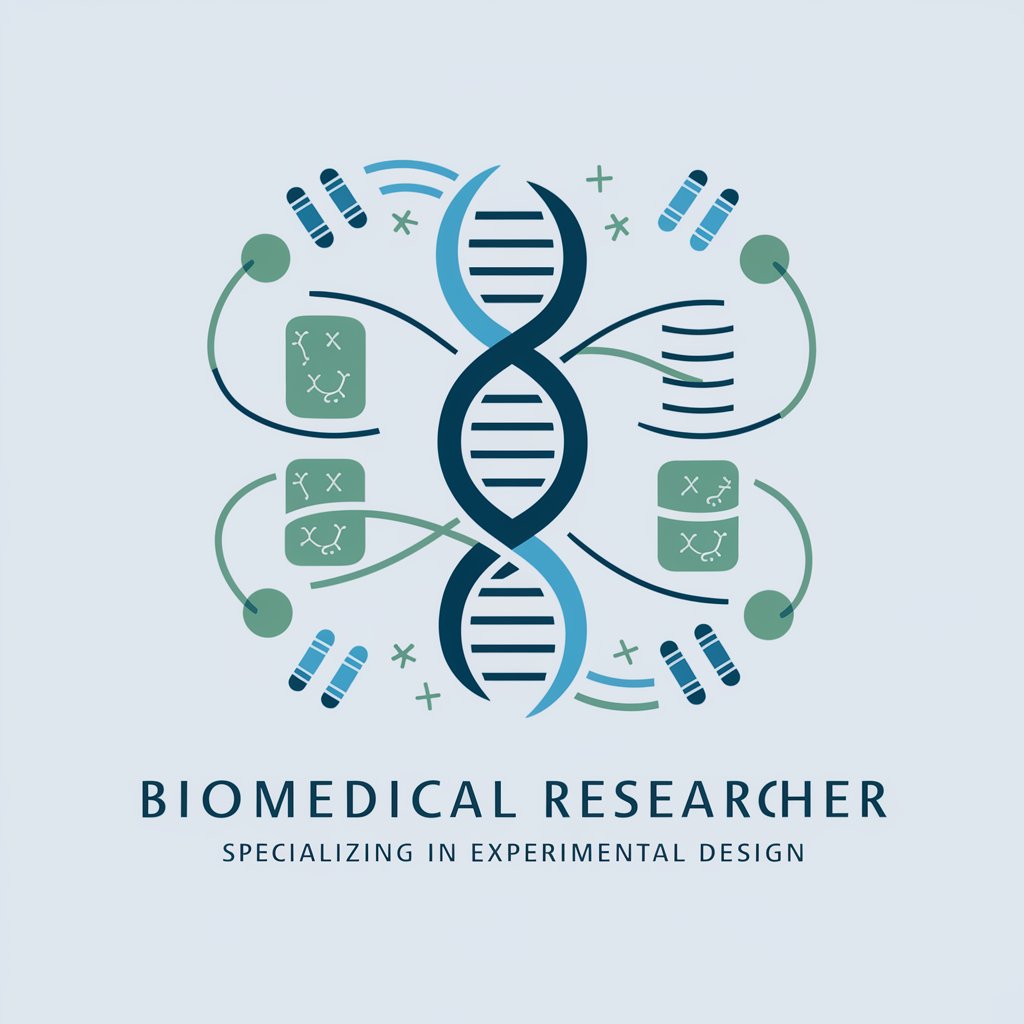
BioExplorer
Unlocking Biomedical Insights with AI
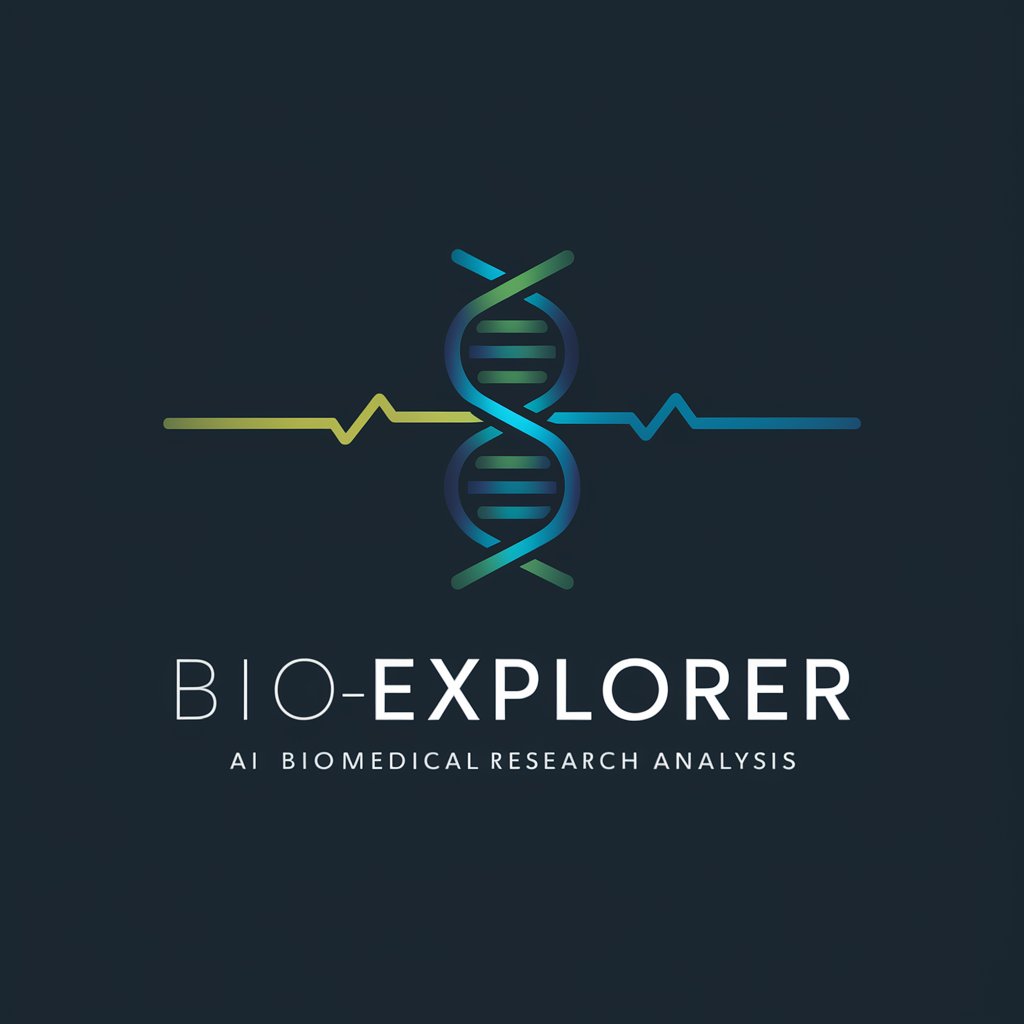
BioResearch Scout
Navigating the Frontiers of Academic Research with AI
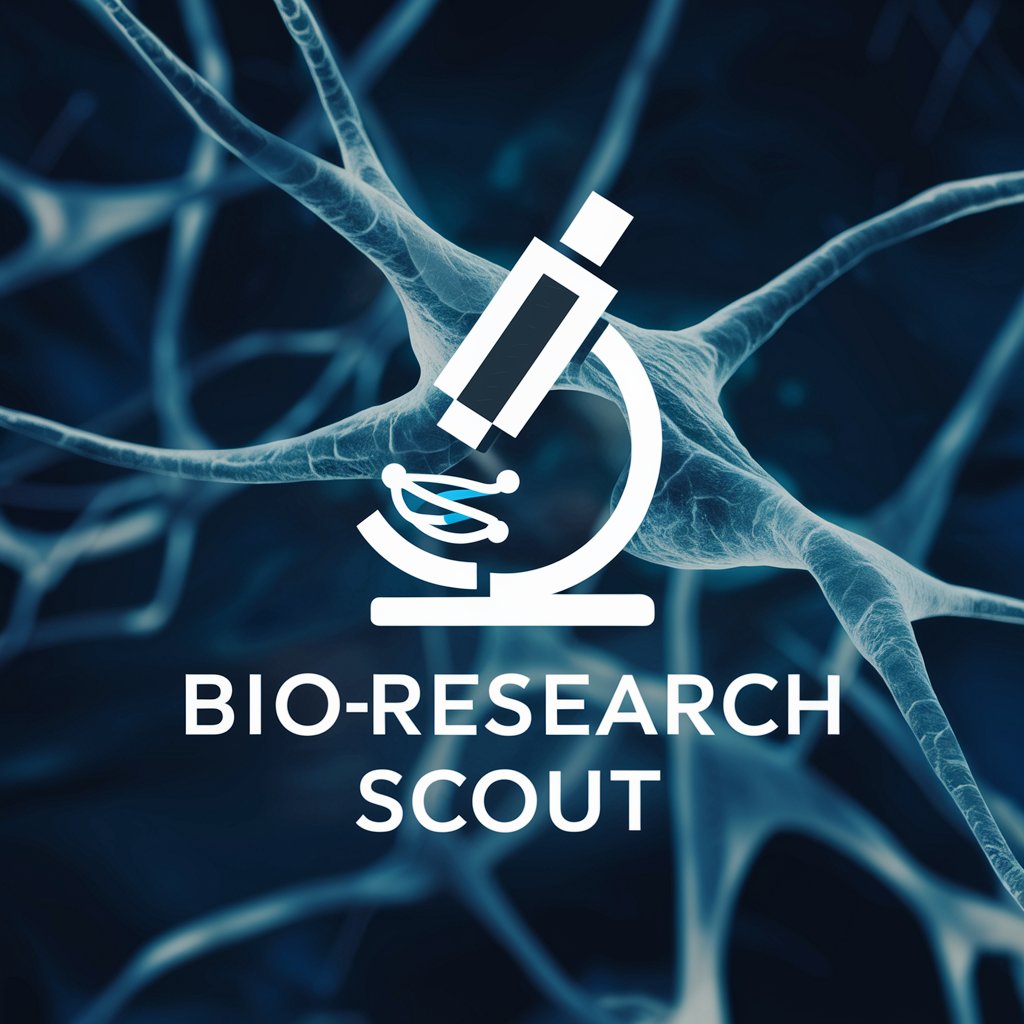
bigRing
Accelerating Innovation with AI

Eng. Biomédica
Empowering Biomedical Excellence with AI

Prepaire Biobot
Empowering biomedical innovation with AI

Exosome Research Publication Analysis
Decipher Exosome Research with AI
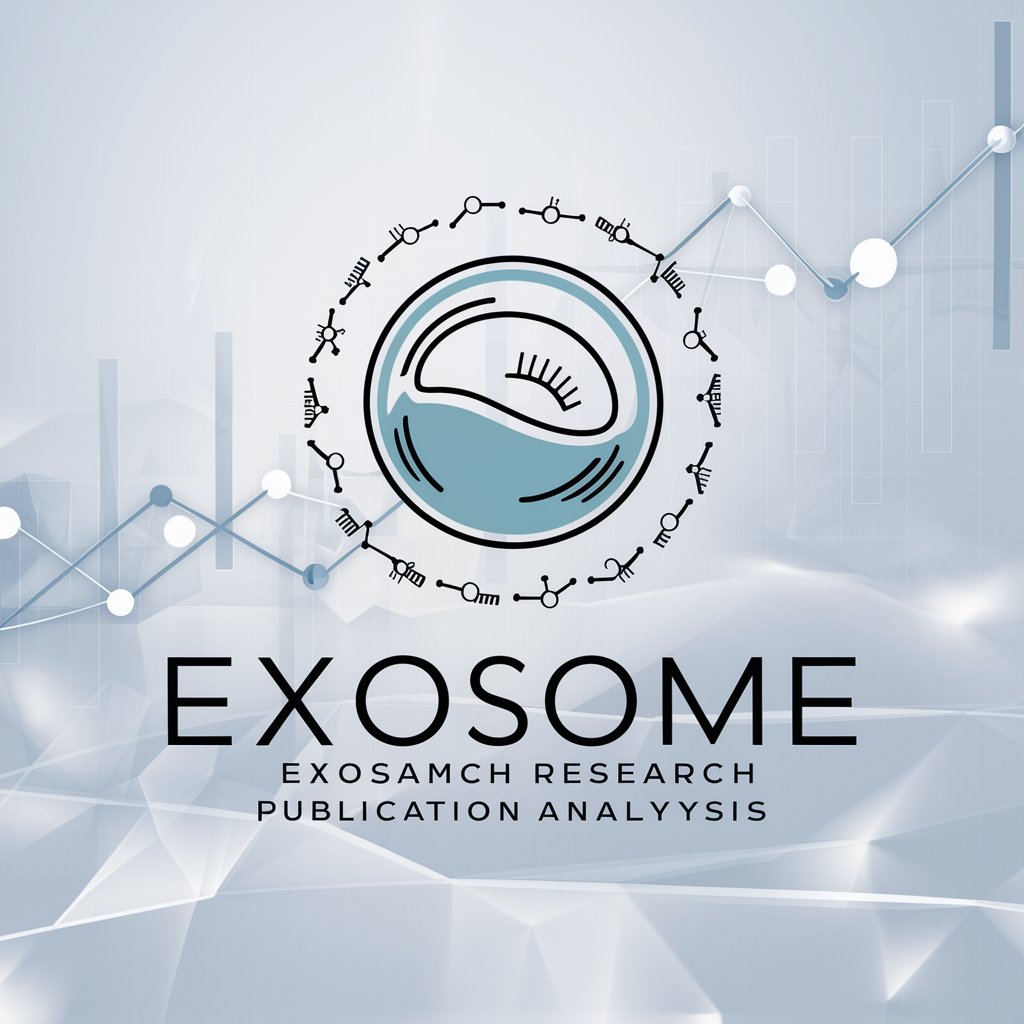
Electro-Bio Scaffold Designer
Designing Future Bio-Scaffolds Intelligently

LNP GPT
Powering lipid nanoparticle innovation with AI

Research Assistant
Empowering Research with AI Insights
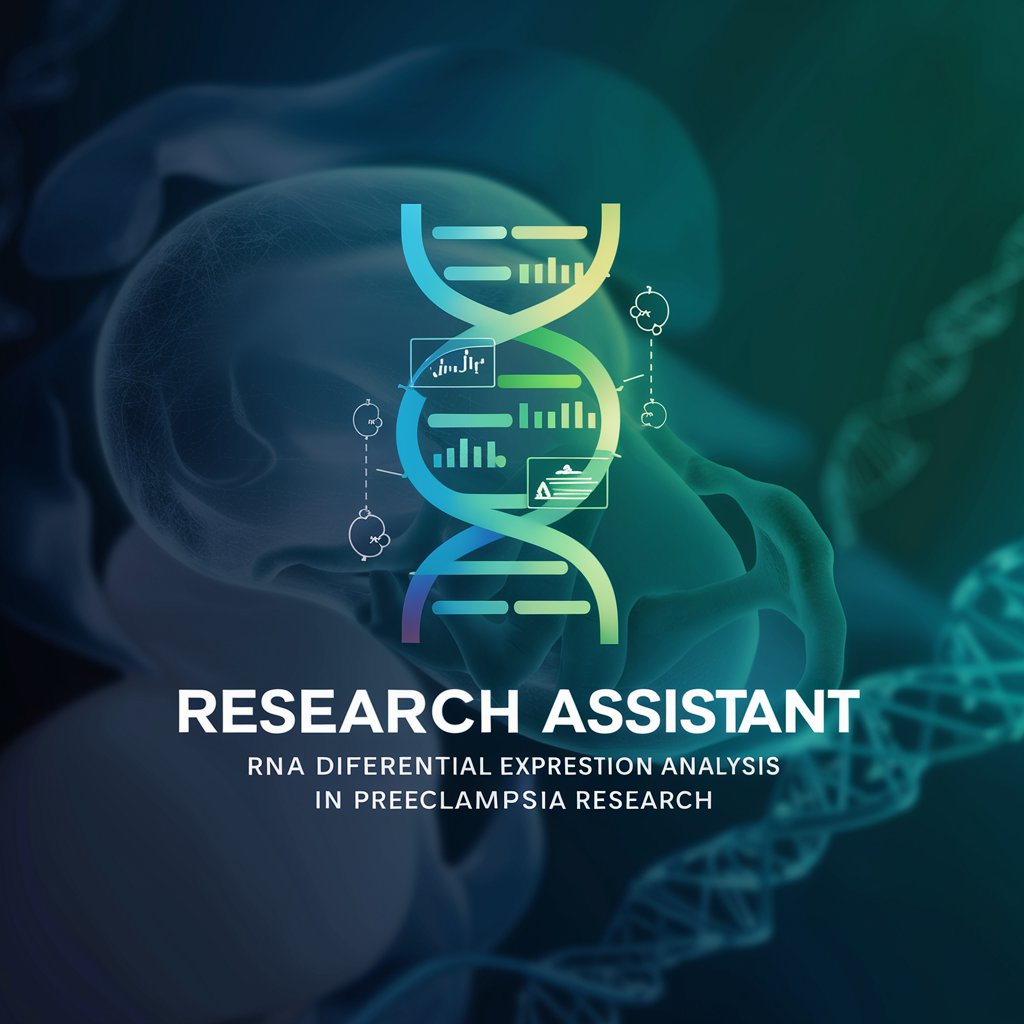
POINTs
Transforming notes into formal scientific text.
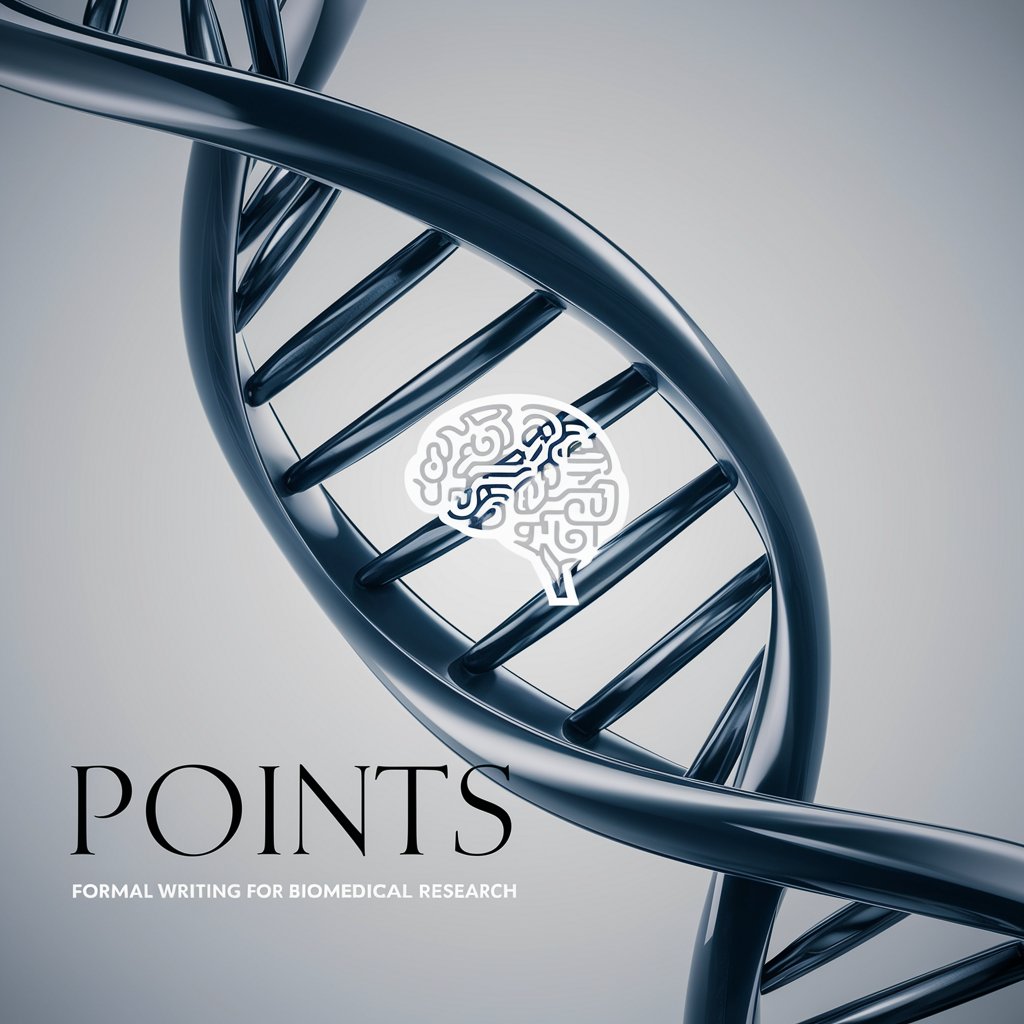
细胞制备一体机
Revolutionizing Cell Preparation with AI

Essential Characteristics of Biomedical AI GPTs
AI GPTs in Biomedical Research are characterized by their deep learning architectures, capable of handling vast amounts of biomedical data. Key features include adaptability to various research needs, from literature review to complex genetic data analysis. Specialized capabilities include natural language understanding of medical terminologies, predictive modeling for drug discovery, and data-driven hypothesis generation. These tools are also equipped with capabilities for web searching, technical support, and image creation, making them versatile for diverse biomedical applications.
Who Benefits from Biomedical AI GPTs?
AI GPTs for Biomedical Research cater to a broad spectrum of users including healthcare professionals, researchers, pharmaceutical companies, and academic institutions. They offer intuitive interfaces for those without programming knowledge, while also providing robust APIs and customization options for tech-savvy users and developers. This dual accessibility ensures that both novices and experts in the biomedical field can leverage these tools for advanced research and innovation.
Try Our other AI GPTs tools for Free
Academic Literature Review
Explore AI GPTs for Academic Literature Review: advanced tools for efficient synthesis and analysis of scholarly materials, tailored for academia.
Cutting-edge Methodology Analysis
Explore AI GPTs for Cutting-edge Methodology Analysis, the ultimate tools designed to dissect, interpret, and generate insights in innovative sectors. Tailored for both novices and experts, these tools offer advanced analysis, seamless integration, and a user-friendly interface, propelling your methodologies to the forefront of innovation.
Recent Publication Discovery
Explore AI GPTs for Recent Publication Discovery: cutting-edge tools designed to revolutionize how professionals access, analyze, and leverage the latest scholarly publications efficiently.
Adaptive Learning Assistance
Discover AI GPTs for Adaptive Learning Assistance, your personalized educational companions. Tailored learning experiences, interactive content, and insightful analytics await to transform your educational journey.
Plot Twists and Turns
Discover how AI GPTs for Plot Twists and Turns can revolutionize storytelling, offering innovative, unexpected developments to captivate audiences and enrich narratives.
Scriptwriting Assistance
Discover AI GPTs for Scriptwriting Assistance: innovative tools transforming script creation with AI-driven suggestions, format guidance, and creative support.
Expanding Horizons with AI GPTs in Biomedicine
AI GPTs are revolutionizing the way biomedical research is conducted. Their user-friendly interfaces and integration capabilities make them an invaluable asset in various sectors of the biomedical field. They not only simplify complex data analysis but also open new avenues for discovery and innovation, enhancing the overall efficiency and productivity of research endeavors.
Frequently Asked Questions
What are AI GPTs for Biomedical Research?
AI GPTs for Biomedical Research are advanced AI tools designed to process and analyze biomedical information using language models. They help in interpreting complex medical data, literature, and research findings.
Who can use these AI GPT tools?
These tools are accessible to a wide range of users including medical professionals, researchers, students, and developers in the biomedical field.
Do I need coding skills to use these tools?
No, these tools are designed to be user-friendly for those without coding skills, though they also offer advanced features for users with programming expertise.
Can AI GPTs help in drug discovery?
Yes, AI GPTs can analyze complex datasets and predict outcomes, aiding significantly in the drug discovery process.
Are these tools capable of processing genetic information?
Yes, they can process and analyze genetic data, offering insights and aiding in genetic research.
How do AI GPTs support biomedical research?
They support research by providing tools for data analysis, literature review, hypothesis generation, and predictive modeling.
Can AI GPTs integrate with existing biomedical research systems?
Yes, many of these tools are designed to integrate seamlessly with existing systems and workflows in the biomedical field.
Are these tools secure for handling sensitive medical data?
Yes, they incorporate security measures to ensure the confidentiality and integrity of sensitive medical data.